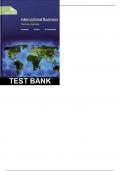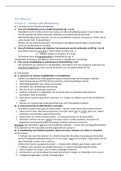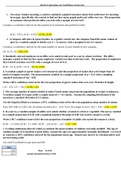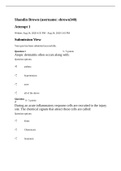Exam (elaborations)
International Business The New Realities 4th Edition By Cavusgil - Test Bank
- Institution
- International Business - Test Bank
International Business: The New Realities, 4e (Cavusgil) Chapter 3 The Cultural Environment of International Business 1) ________ refers to the values, beliefs, customs, arts, and other products of human thought and work that characterize the people of a given society. A) Ethnicity B) Herit...
[Show more]








